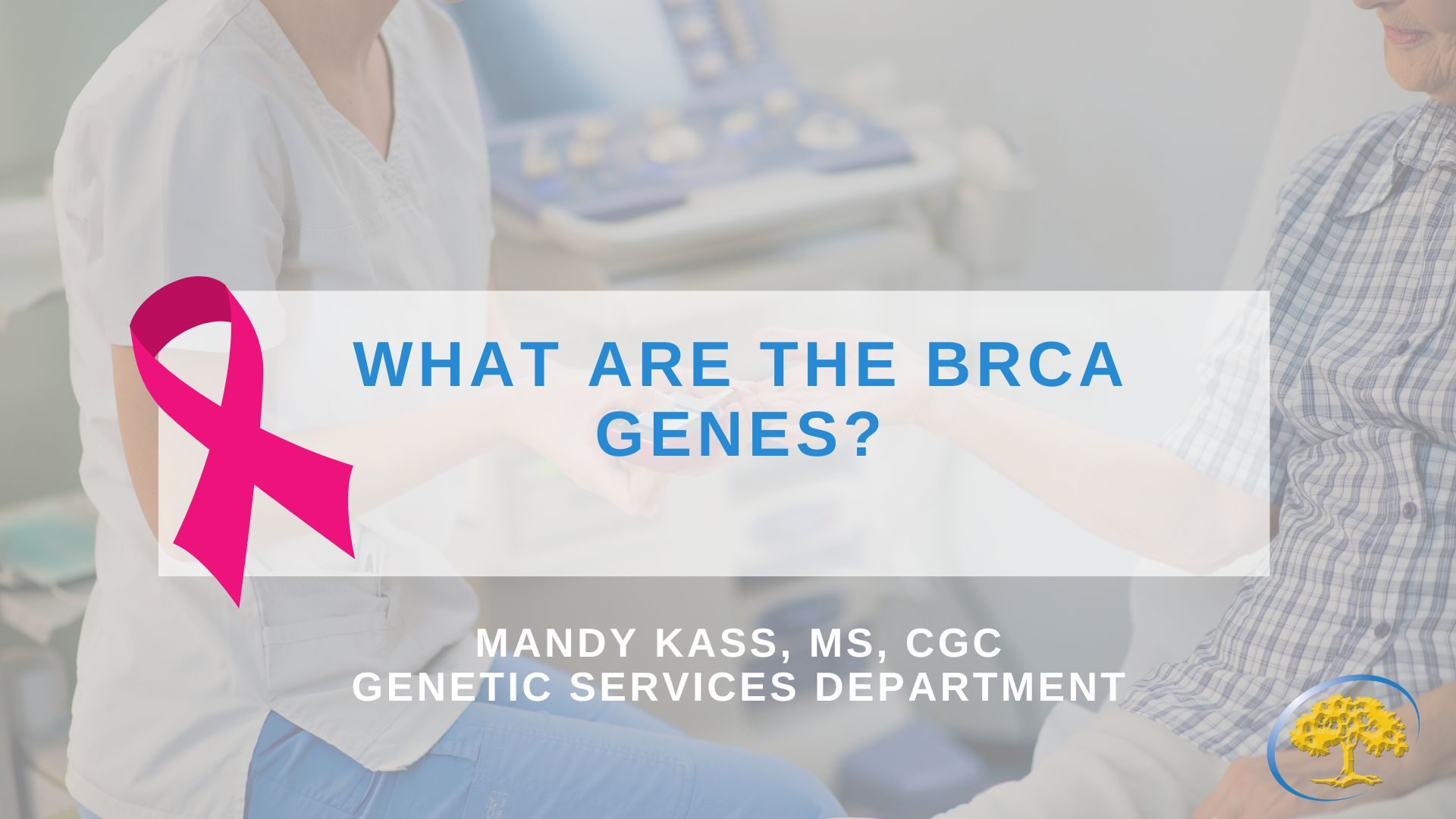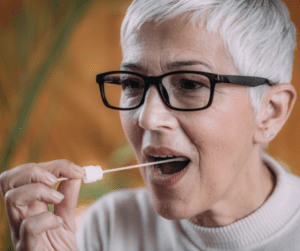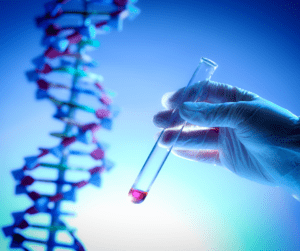
Posted 3 years ago
What are the BRCA Genes?
It’s breast cancer awareness month, and with that comes an opportunity to provide education and recognition about the impact of breast cancer. During this time, you may have heard of the BRCA1 and BRCA2 genes. Maybe you know someone who has a mutation in one of these genes. Maybe you yourself has a mutation in one of these genes. Or maybe you have seen or heard conversations in the media about these genes and how they have impacted celebrities like Angelina Jolie for example. But what does it mean to have a mutation in the BRCA1 or BRCA2 gene?
We all have approximately 20,000 genes; all of which collectively act as a blueprint for our bodies. Some of our genes determine what color to make our eyes, others help our hearts function properly, and some work to protect us from certain types of cancer. All our genes come in pairs (one from mom and one from dad), meaning we all have two copies of the BRCA1 and BRCA2 gene (yes – this includes men too!). When working properly, these genes help protect us from breast, ovarian, pancreatic, and prostate cancer. Some people, however, are born with a mutation (similar to a spelling mistake) within the BRCA1 or BRCA2 gene that causes the gene to not function properly. So, when someone is said to be “BRCA positive” it means they have a harmful mutation within one of their BRCA genes. But how do these genes protect us?
The BRCA1/2 genes are considered “tumor suppressor genes”, which are genes that help control cell division. If a tumor suppressor gene is mutated, then we may see our cells start to divide in an uncontrollable way, which can in turn lead to the development of cancer. We can think of these types of genes like the brakes in our car. We use our breaks to slow down when necessary, but if the breaks stop working we have no way to stop the car. Having a BRCA gene mutation causes a higher risk for certain cancers but does not guarantee that person will develop cancer in their lifetime. This is because the first mutation has been present since birth, but the other copy of the gene is still working. If the second copy of the gene becomes mutated (known as an acquired mutation), then cancer may develop. This is referred to as the “two-hit hypothesis”; the first copy with the mutation is the first hit, and a mutation in the other copy of the gene (which typically occurs later in life) is the second hit. However, having “two hits” alone is not enough to cause cancer. Damage to our cells must then occur (possibly from environmental/lifestyle exposures or other cell processes) that in turn cannot be repaired by the damaged tumor suppressor genes and results in cancer development.
Knowing if you have a BRCA gene mutation can be especially important to your medical management. If you have a higher risk of breast or other cancers because of an inherited BRCA1/2 or other gene mutation, we can do a better job of taking care of you and your family. Often, this means earlier and more frequent cancer screenings to increase the chances of finding cancer at an early stage when it may be more treatable. Sometimes, we may even recommend preventative surgeries or medications to help reduce the chances of developing cancer. If you or your family members have a BRCA1/2 gene mutation, or another gene mutation that increases your risk, it is important to talk with your provider and/or genetic counselor to better understand these risks and possible proactive options.
Genetic Services Department
As a certified oncology genetic counselor, Mandy works with patients who have a personal and/or family history of cancer to assess their risk of having an inherited cancer predisposition. This information allows for the pursuit of early detection or possibly prevention of certain cancer types.
The ultimate goal of cancer genetic counseling is to empower patients to use their personal risk information to better inform treatment and management decisions and to educate family members on their possible cancer risks.



